
Stephen Baker
August 12, 2025
Your website is your digital storefront. It doesn’t just need to look good — it needs to rank, attract the right people, and convert them.
Getting your site on the first page of Google isn’t enough. The structure, layout, and copy need to turn visitors into leads.
This guide walks you through how to do that step by step.
Even in a niche like plumbing, there are over 7 million online searches per year in the US alone.
That means your customers are actively searching for what you offer.
Before I get into anything though...
I want to show you some of the results our other home service clients have gotten with our SEO...
These are just a few case study videos:
And these are some screenshots taken from our clients' Google Search Console showing their increase in impressions and clicks:
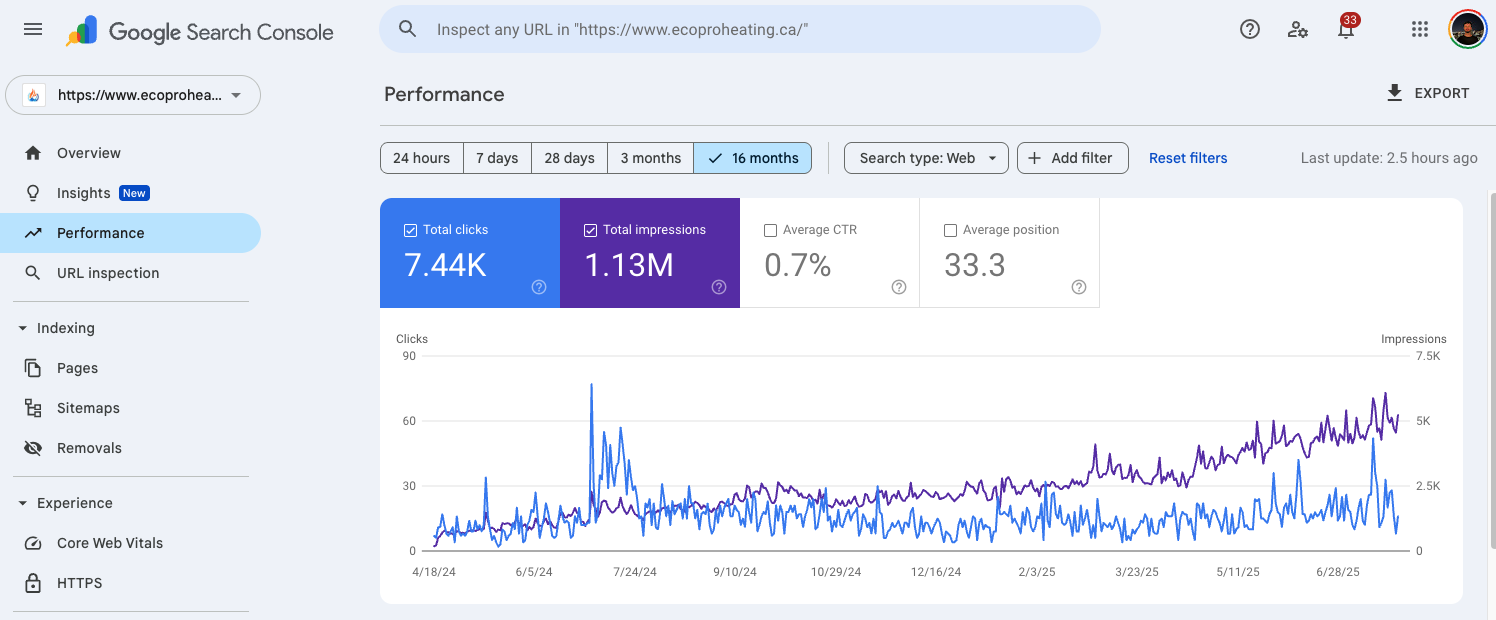
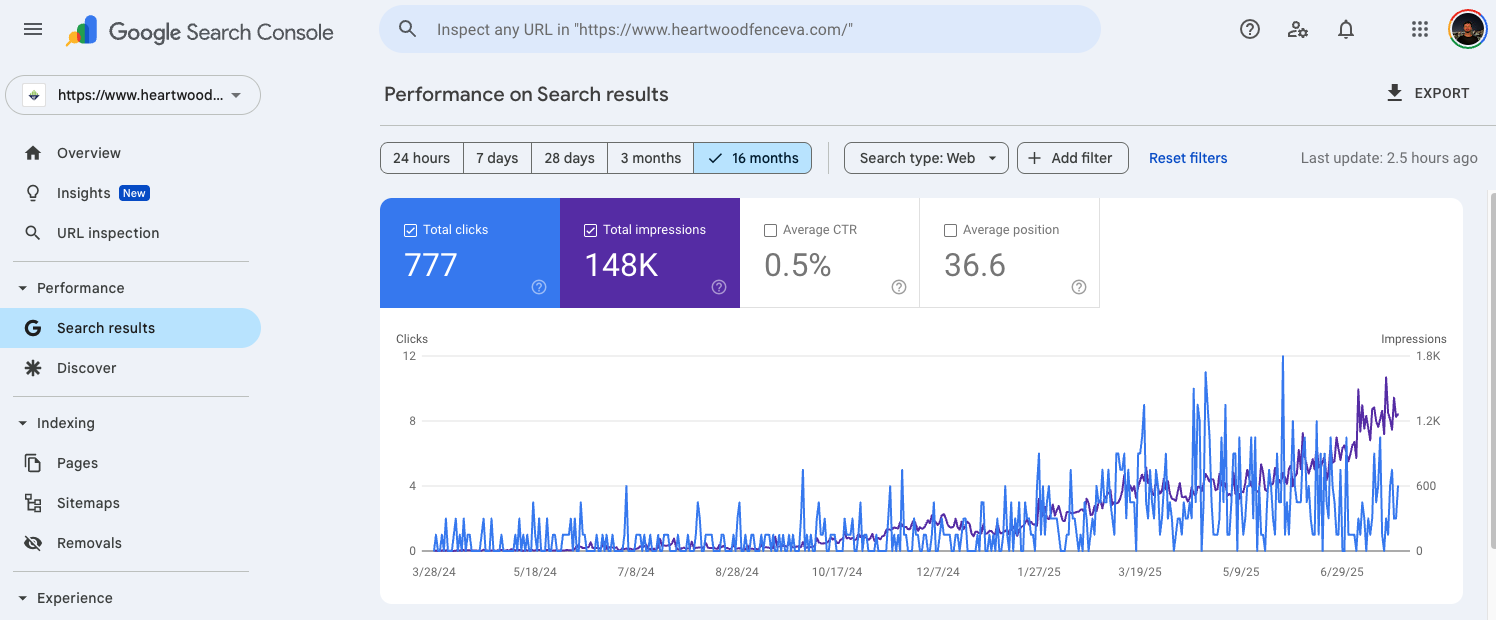
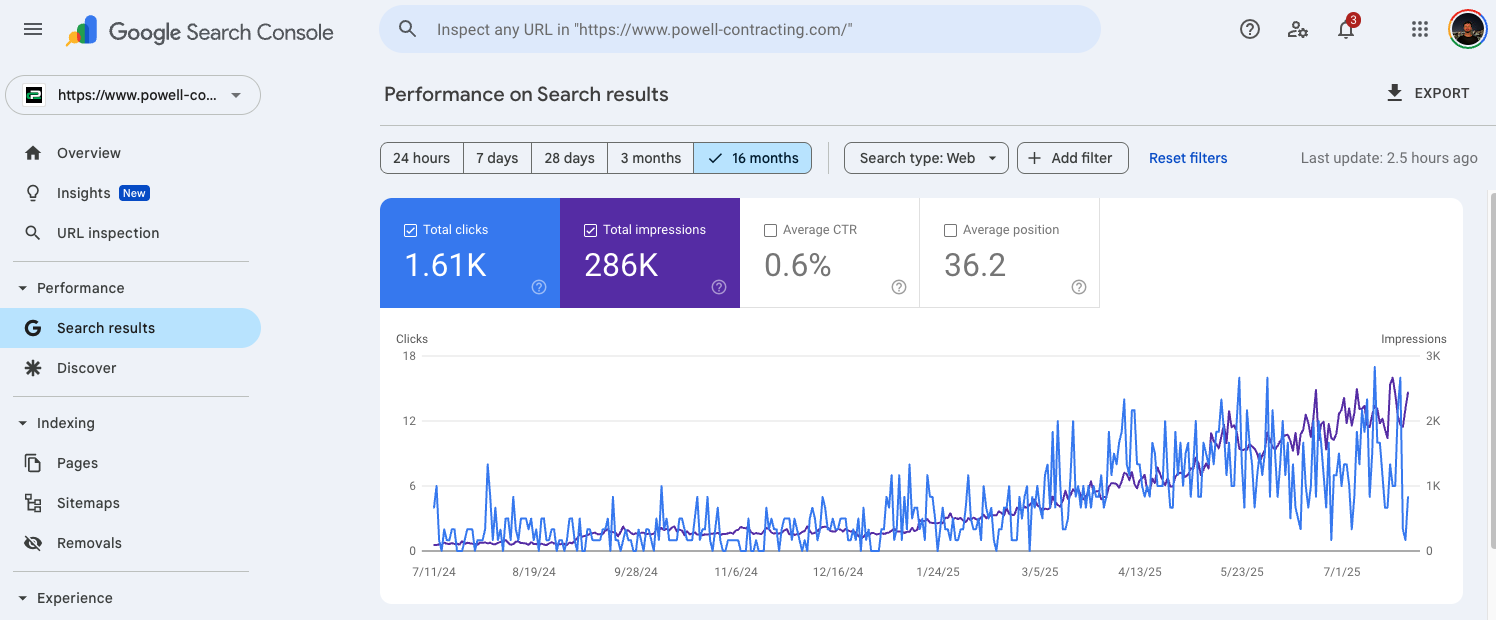
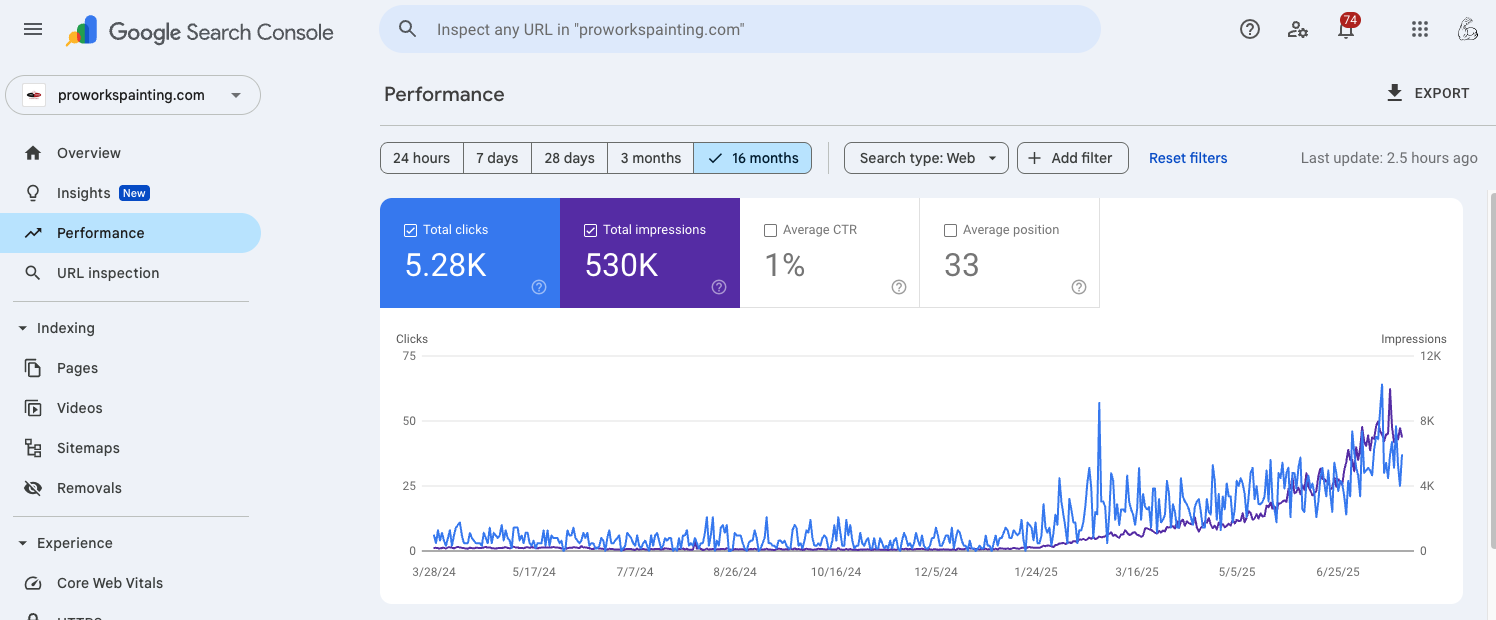
Keyword research isn’t about listing every plumbing service you offer.
It’s about finding exactly what people in your area are searching for right now.
Use a tool like Semrush.
Start with broad terms like “plumber” or “clogged drain.”
Then filter by:
Examples:
Build a keyword list of 50 high-potential phrases.
Every keyword needs its own page.
That page can either be:
Example:
The goal: show up when people search for urgent problems or start researching.
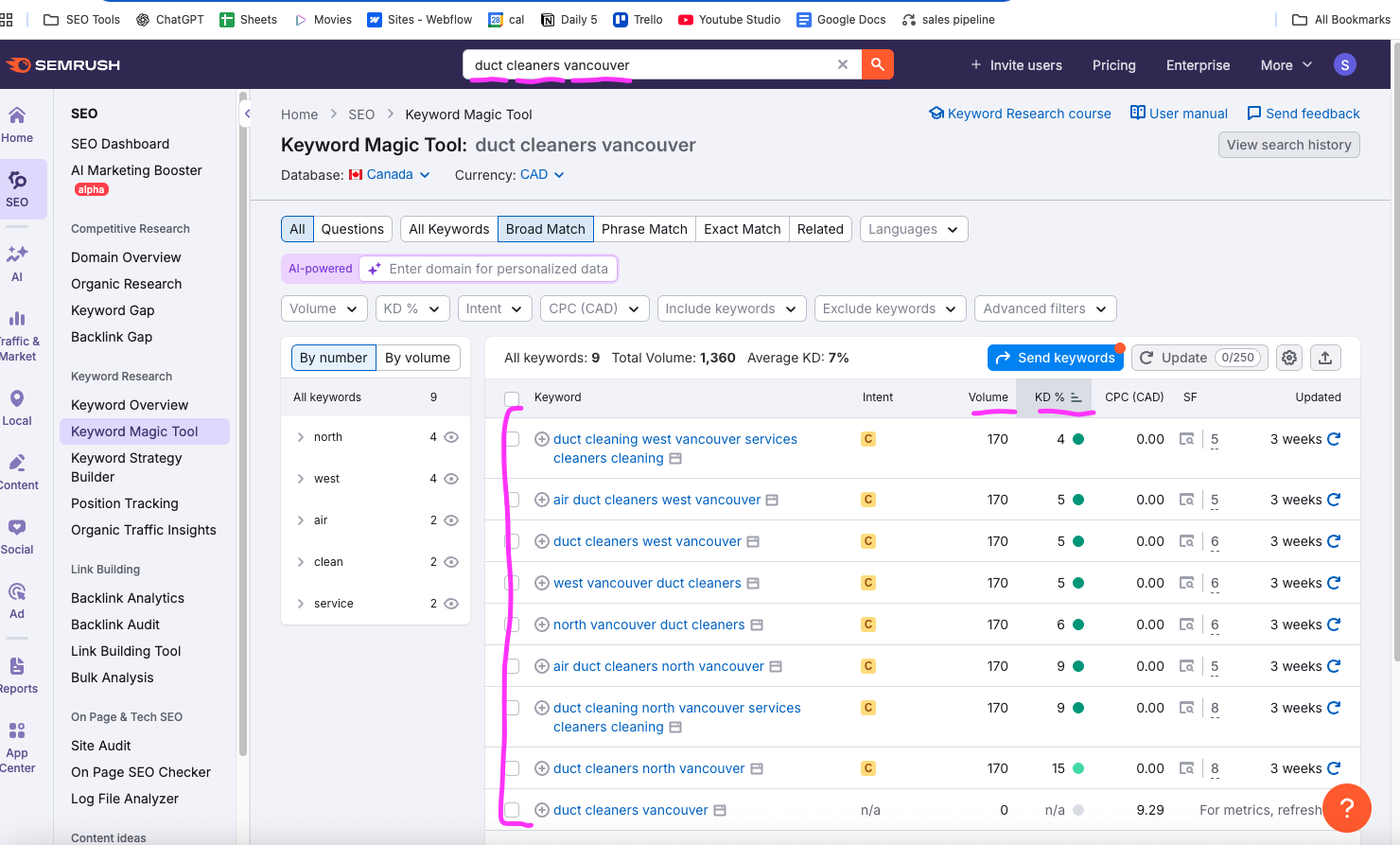
If your site is messy, Google won't rank it.
Structure your website like this:
Each page needs a clean, readable URL:
Make sure all pages are easy to find from your homepage.
Here is an example sitemap you can follow:
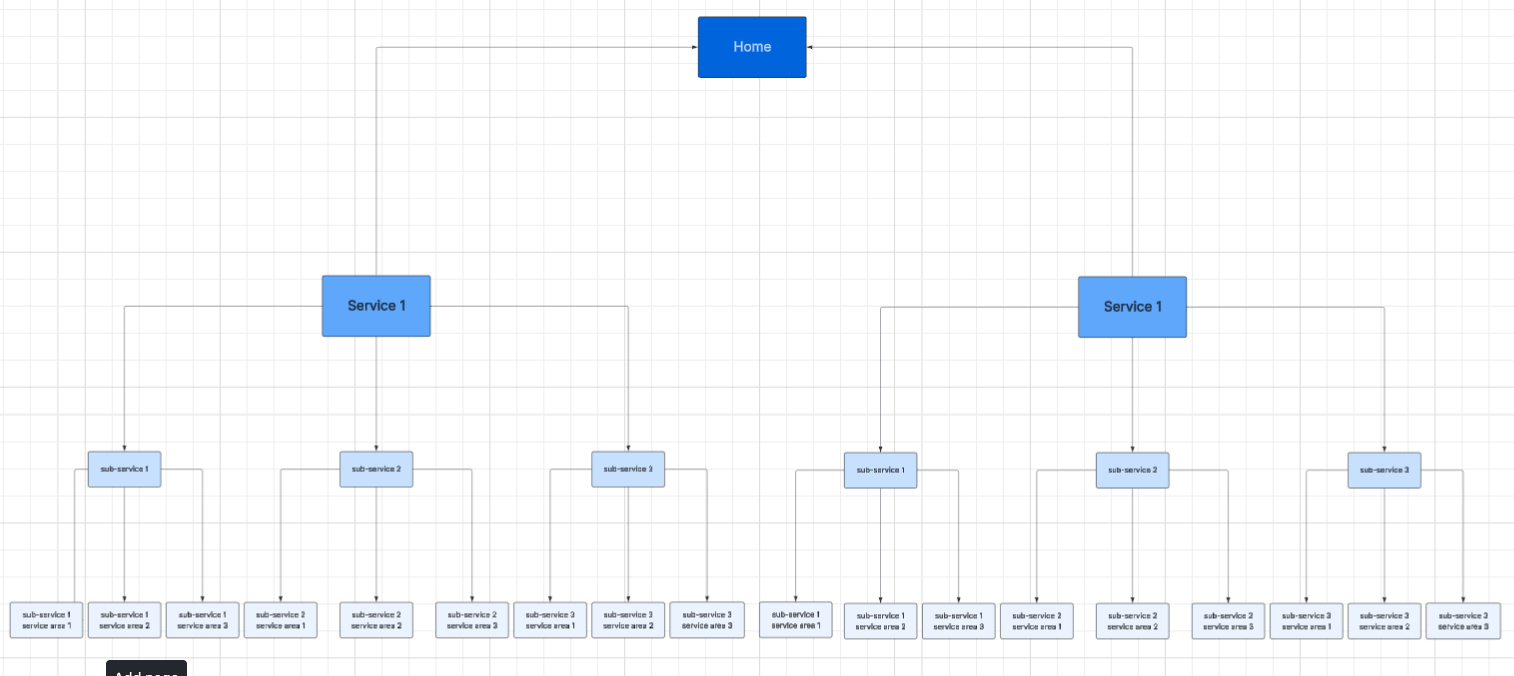
Here is that same sitemap using the example of a plumber/hvac company:
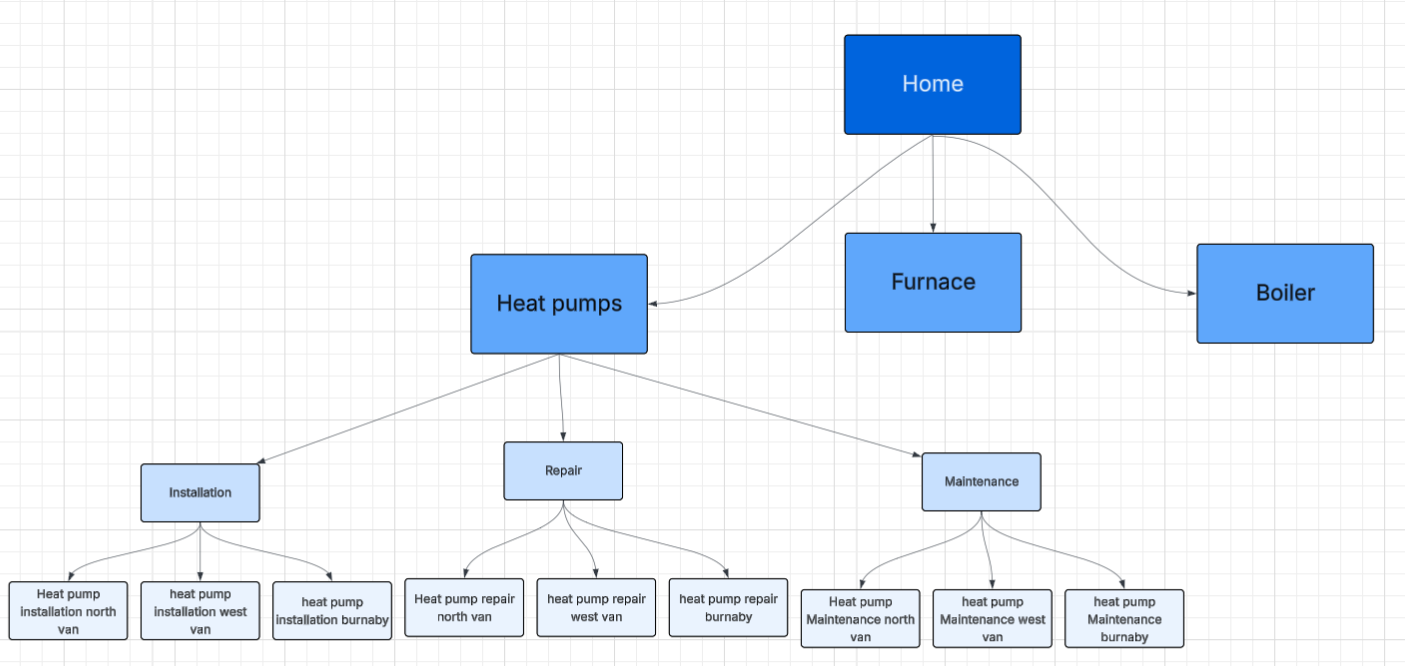
You don’t need to repeat the keyword 50 times.
You just need to place it naturally where it counts:
Meta title: under 60 characters
Meta description: under 160 characters
Pro tip: Want to know how long your page should be?
Search your keyword. Copy the top-ranking page’s text and paste it into wordcounter.net. Count the keyword mentions too.
Aim to match or beat both.
Example:
When I searched up "plumber near me", I took the highest ranking website page, copied all the text and pasted it into a word counter
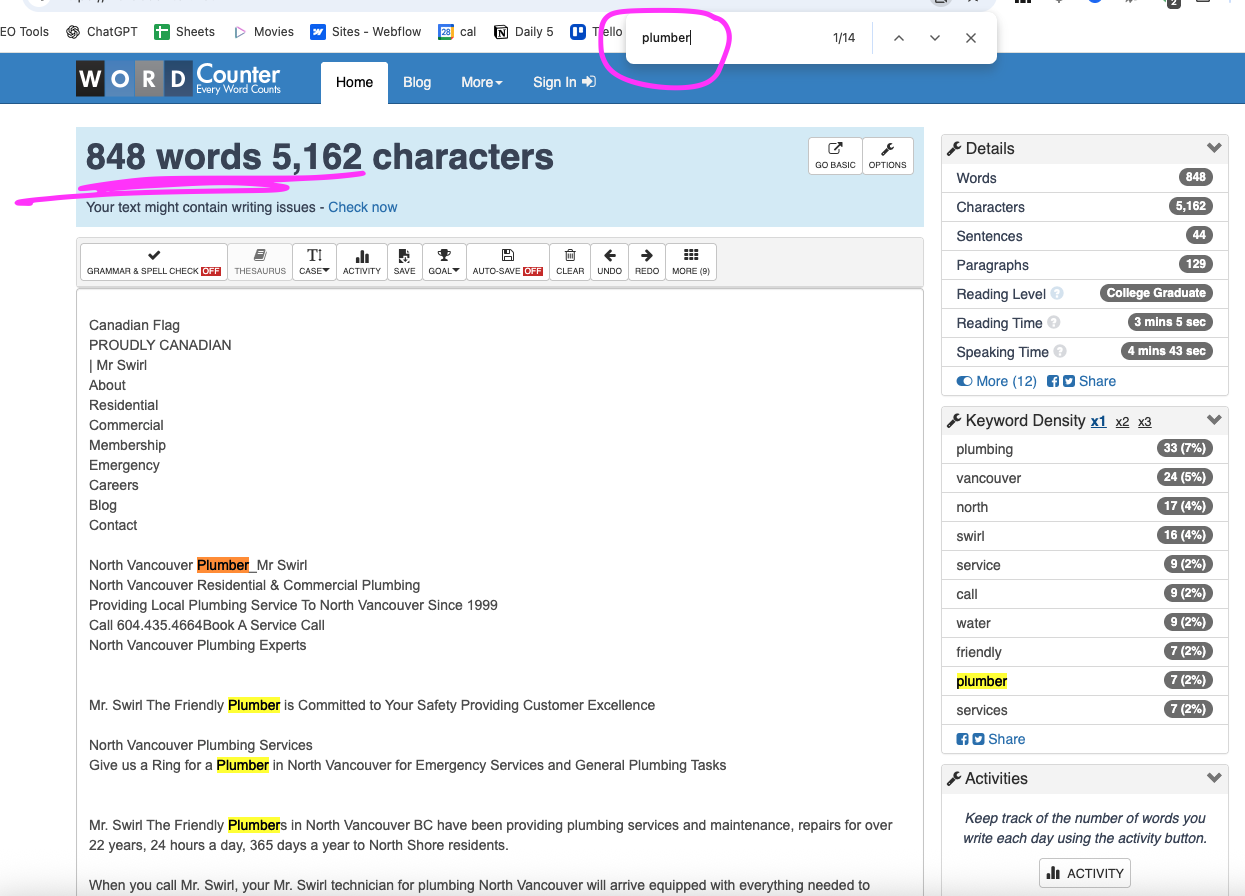
If I was trying to rank for this keyword, I should hit at least 850 words on my page and have over 14 mentions of "plumber"
This is the behind-the-scenes stuff, but it matters.
Use Google PageSpeed Insights and Search Console to audit your site.
Checklist:
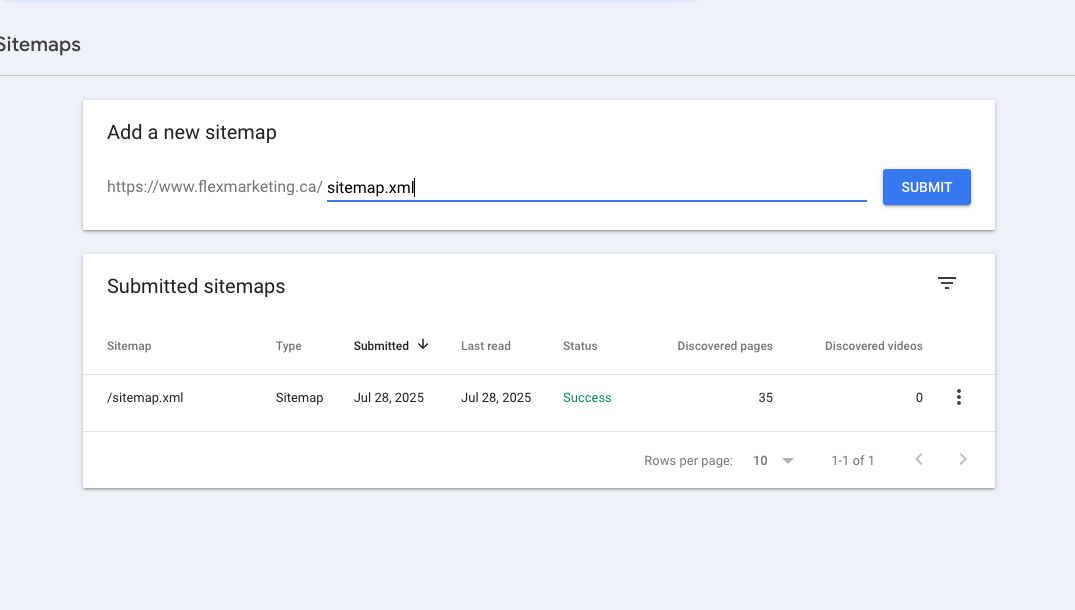
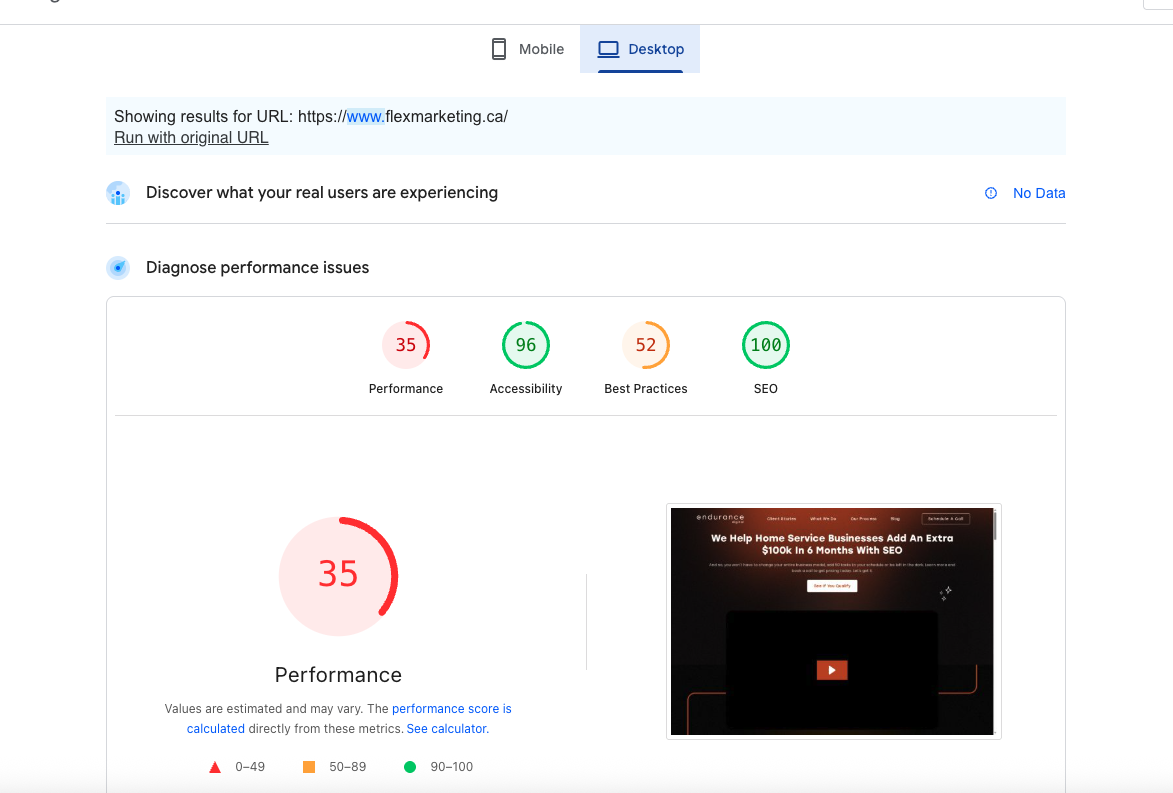
Ranking is only half the game.
Most plumbing websites don’t convert because they’re cluttered or confusing.
Your service pages should include:
Someone should land on the page and immediately know:
This entire youtube video explains this a lot more in-depth so check it out:
Blogs aren’t for getting leads directly.
They are for attracting long-tail searches, increasing authority, and building trust.
Post 3–5 blogs per week.
Use your keyword list.
Make them hyper-local.
Examples:
Avoid writing fluff like:
Instead, answer real questions your customers ask.
Keep people clicking through your site.
Every blog post should link to:
Every service page should link to:
Google loves when users stay on your site.
These is an example of an internal link: Construction SEO Services in Vancouver
Track your SEO results monthly.
Use:
Check:
Google analytics:
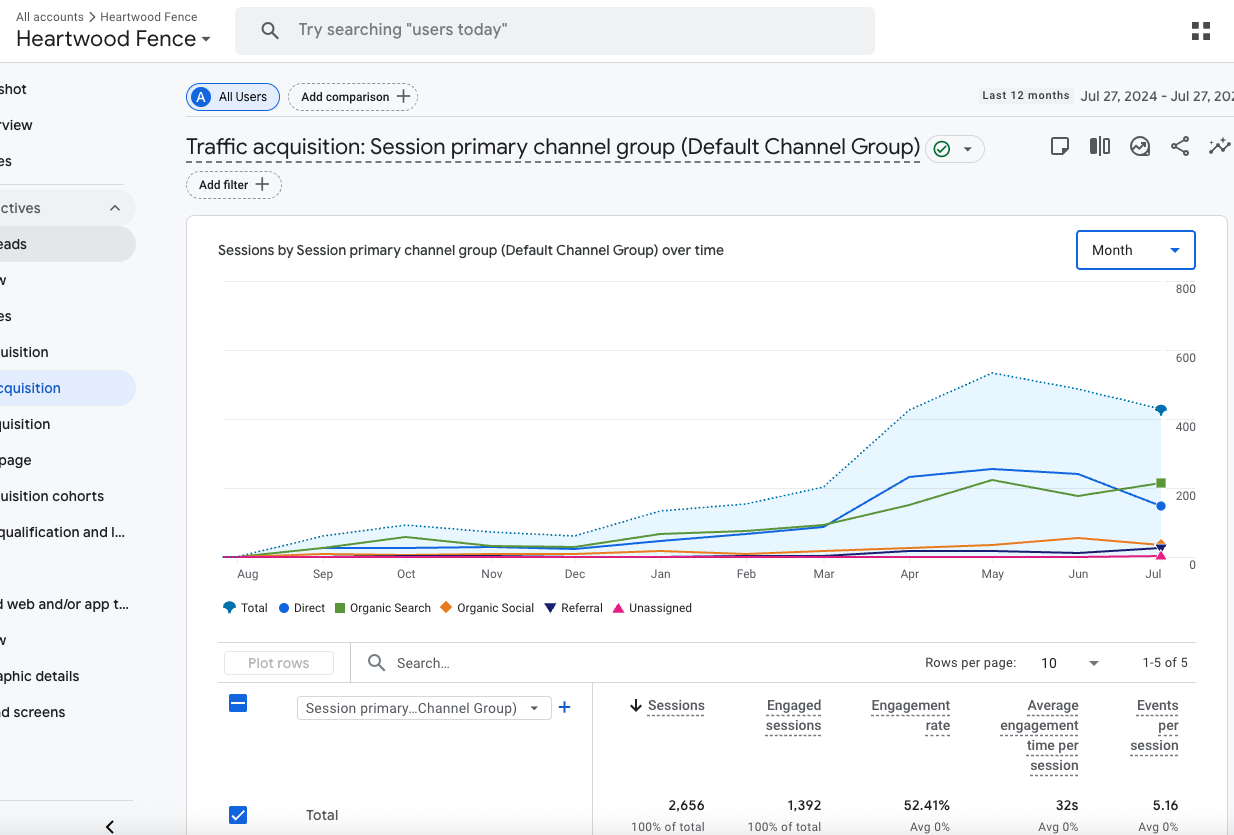
Google Search Console:
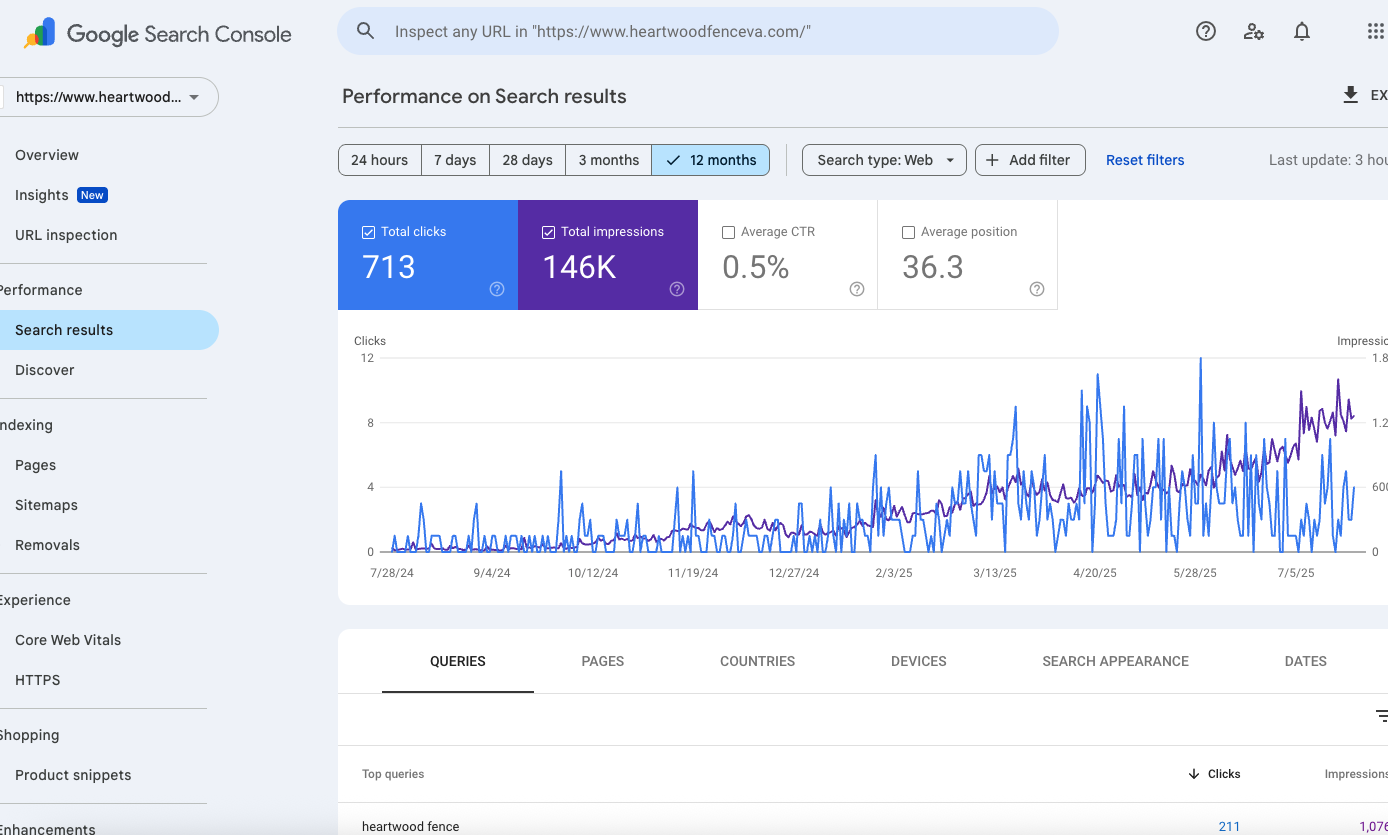
Semrush:
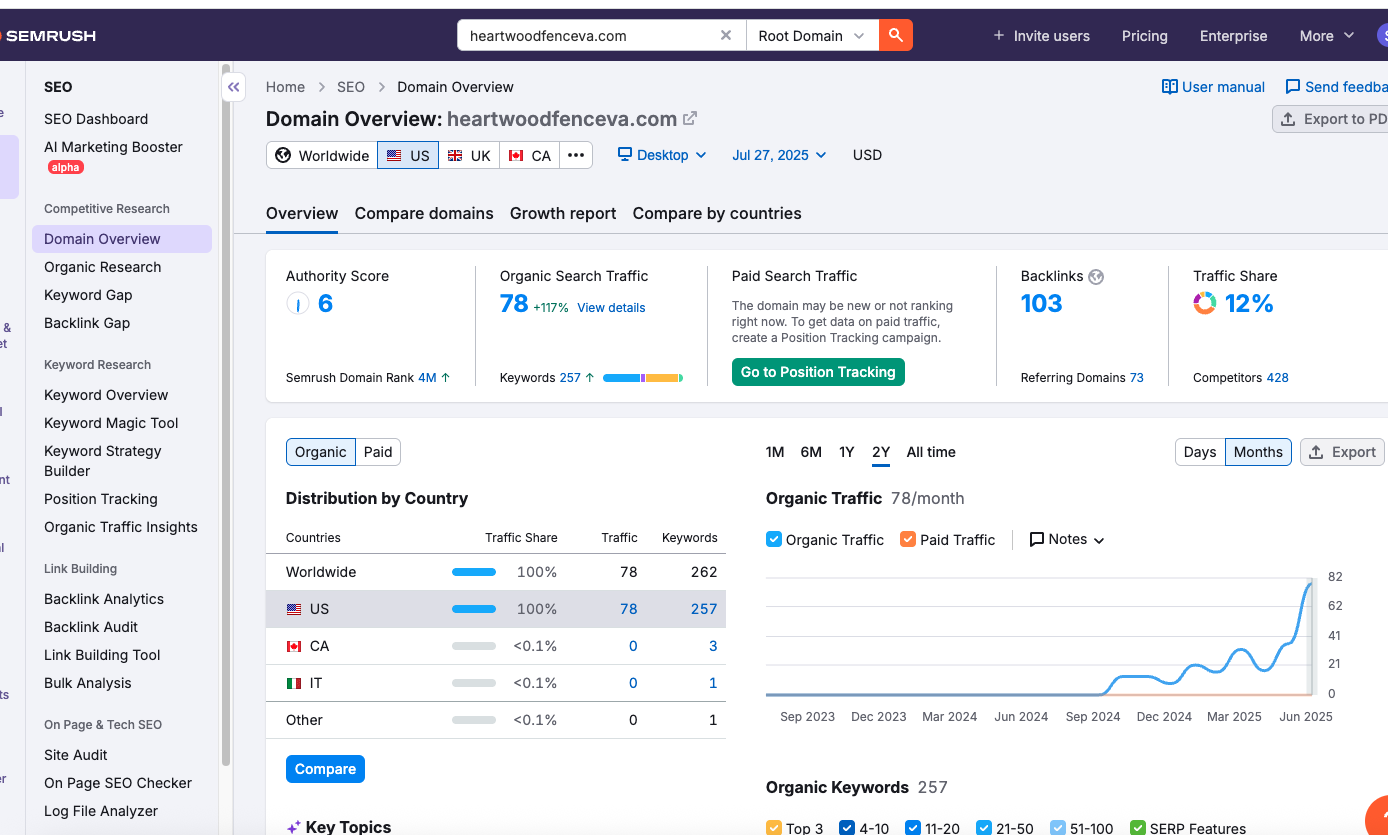
One week of SEO won’t move the needle.
But 3–6 months of focused effort?
That builds a lead engine that never turns off.
Most plumbers quit early. The ones who stick with it dominate.
This is exactly what we do for plumbers every day.
We:
You get:
We do all the work. You check in once a week.
Pricing is $2K to $4K/month. If you don’t get results, we give you a refund.
Book a free call to get started.